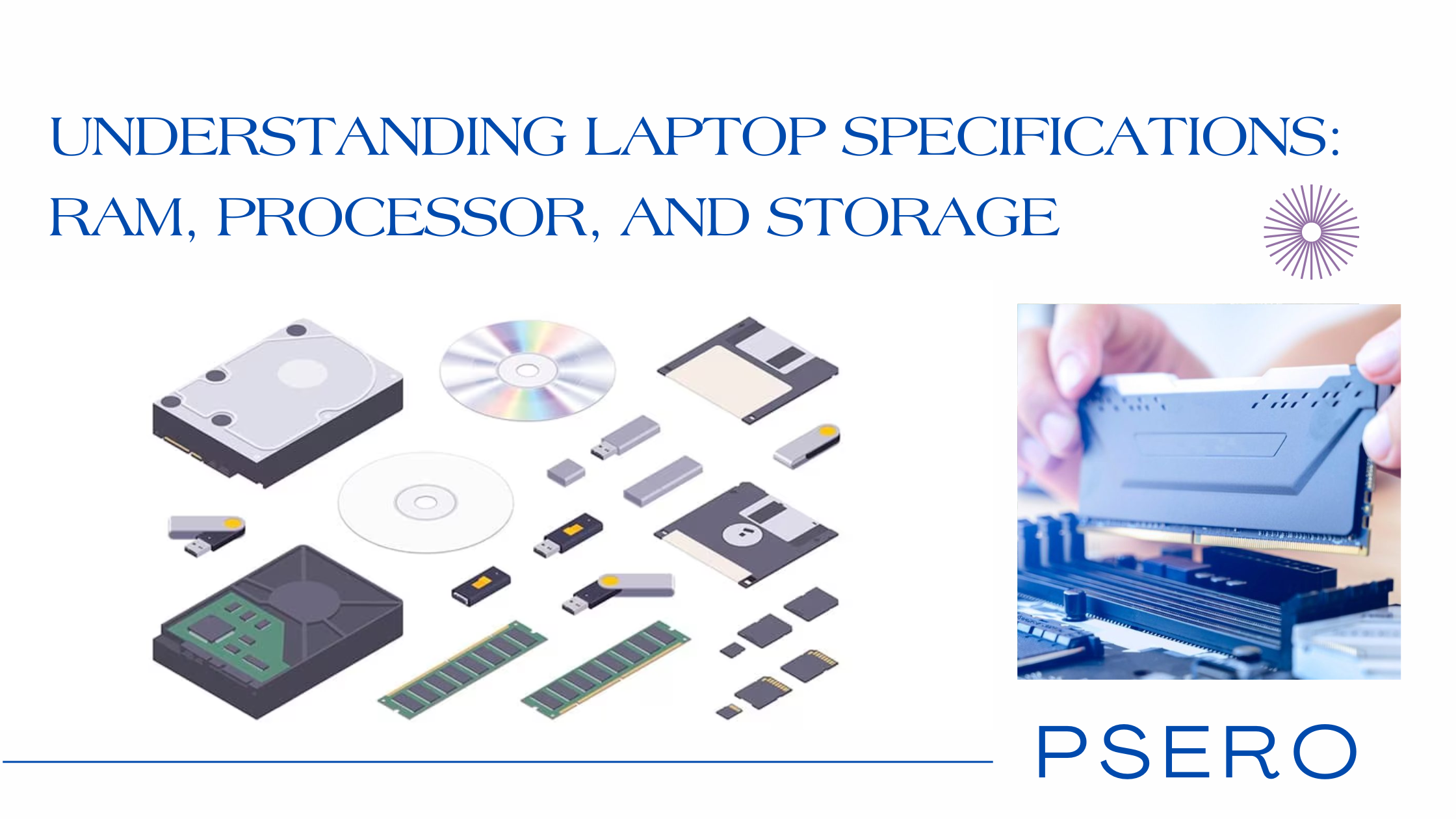Laptops come in various shapes, sizes, and specifications, which can often be confusing for consumers. Among the most critical specifications are RAM, processor, and storage, as they directly impact the performance and capabilities of a laptop. In this guide, we’ll break down these specifications to help you make informed decisions when choosing the right laptop for your needs. And remember, when it comes to purchasing laptops, Psero Online Store stands out as the best destination for quality products and exceptional service.

RAM (Random Access Memory): RAM is like the short-term memory of your laptop. It stores data that the CPU (Central Processing Unit) needs to access quickly to perform tasks efficiently. The more RAM your laptop has, the smoother it will run, especially when multitasking or running demanding applications. Common RAM sizes include 4GB, 8GB, and 16GB, with higher amounts providing better performance for power users, gamers, and content creators.
Processor (CPU): The processor is the brain of your laptop, responsible for executing tasks and running programs. It determines how fast your laptop can perform various operations, from browsing the web to editing videos. When considering a laptop’s processor, look at factors like the number of cores, clock speed (measured in GHz), and brand (e.g., Intel or AMD). Higher-end processors offer better performance and efficiency, making them ideal for intensive tasks like gaming and multimedia editing.
Storage (HDD vs. SSD): Storage refers to the amount of space available on your laptop for storing files, applications, and the operating system. There are two main types of storage: HDD (Hard Disk Drive) and SSD (Solid State Drive). HDDs use spinning disks to store data and are more affordable, but they are slower and less durable than SSDs. SSDs, on the other hand, use flash memory and offer faster read/write speeds, quicker boot times, and better overall performance. While SSDs are typically pricier per GB than HDDs, they provide a significant boost in performance and are worth the investment for most users.
Other Considerations: In addition to RAM, processor, and storage, there are other specifications to consider when choosing a laptop, such as display resolution, graphics card (GPU), battery life, and connectivity options (e.g., USB ports, HDMI). These specifications can vary depending on your specific needs and usage scenarios. For example, gamers may prioritize a dedicated GPU for smooth gameplay, while travelers may value long battery life and lightweight design.
Conclusion: Understanding laptop specifications like RAM, processor, and storage is essential for making informed purchasing decisions. By considering these factors in relation to your needs and budget, you can choose a laptop that meets your requirements and provides excellent performance and reliability. And when it comes to finding the perfect laptop, look no further than http://psero.comPsero Online Store for quality products and exceptional service. Whether you’re a student, professional, or casual user, Psero Online Store is your trusted partner in the world of laptops.
